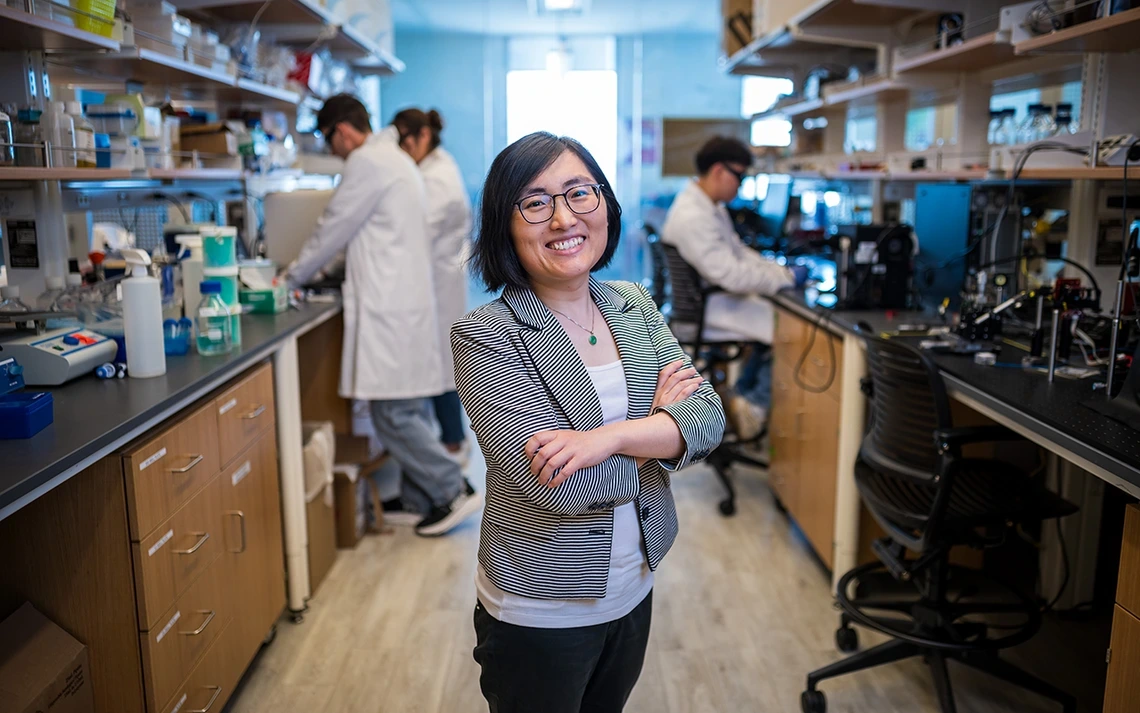Shang Song earns $2.32M NIH grant to develop bioimplant

Shang Song, Frank L. and Daphna Lederman Professor and assistant professor of biomedical engineering, supervises students in The Song Lab investigating health care devices that speed injury recovery.
The National Institutes of Health granted Shang Song a five-year Director's New Innovator Award of $2.32 million to develop a bioimplant that treats spinal cord injuries and their associated complications.
Song, Frank L. and Daphna Lederman Professor and assistant professor of biomedical engineering, is creating a closed-loop neuromodulation implant device expected to reduce pain from spinal cord injuries, improve motor recovery and promote spinal plasticity.
The device leverages neuroplasticity — the ability of nerve cells to reconnect and form pathways to perform body functions — to treat spinal column damage.
"Traditionally, the spinal cord has been viewed as a hard-wired and passive conduit, merely relaying signals," she said. "However, this view is incomplete. The spinal cord has a remarkable ability to adapt and that gives us the key to restoring its function."
The device encourages the spinal cord to find neural pathways that reduce pain while promoting motor recovery. With repeated stimulation, the spinal cord learns which signals improve movement and decrease discomfort.
“The department is proud to see one of its youngest faculty win this prestigious NIH award,” said Mario Romero-Ortega, head of the Department of Biomedical Engineering in the College of Engineering. “Dr. Song is a rising star in the biomedical field, and her innovative work in regenerative medicine and organ-on-chip systems will contribute to uncovering new therapeutic options in these key areas.”
